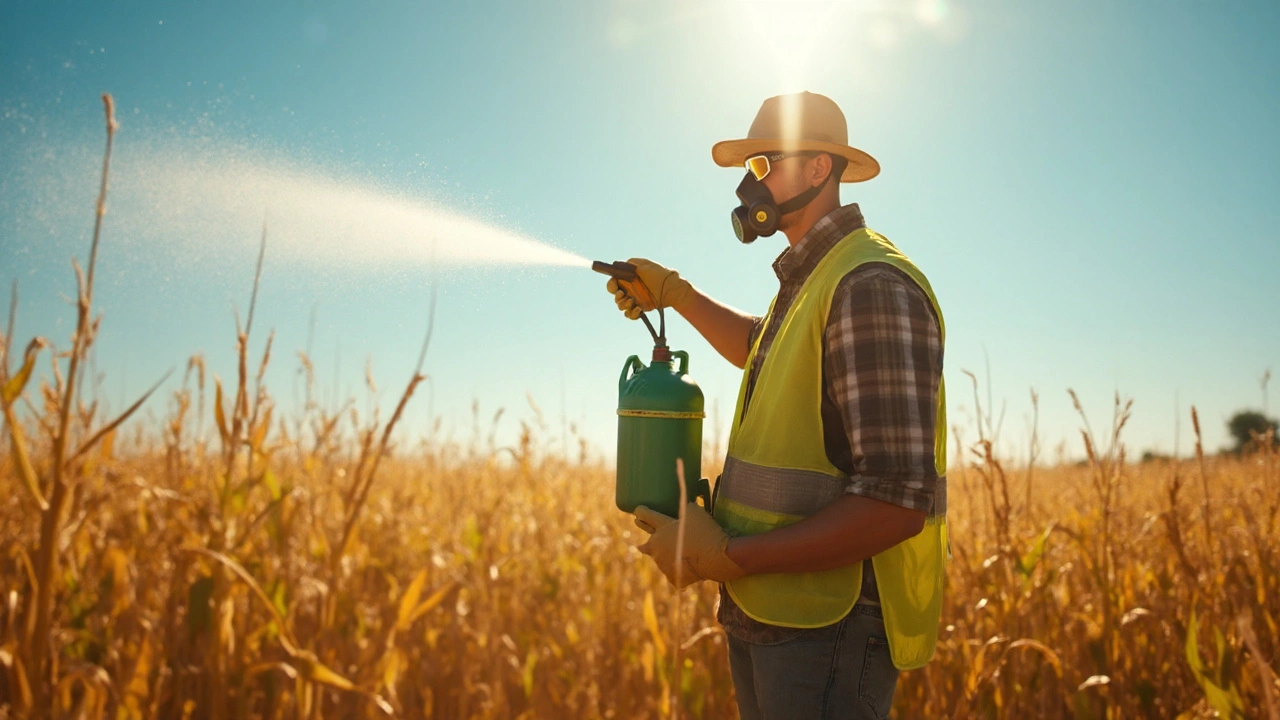Pesticide Basics: What They Are and Why They Matter
When you see a garden or a farm, pesticides are probably doing the behind‑the‑scenes work of keeping bugs away. They’re chemicals designed to kill pests, but they don’t stop at insects. They can linger on food, drip into water, and even get into the air we breathe. Understanding what you’re dealing with is the first step to protecting yourself and your family.
Health Risks You Should Know
Many pesticides are linked to short‑term symptoms like skin irritation, headaches, or nausea if you handle them without protection. Longer‑term exposure can affect the nervous system, hormone balance, and even increase cancer risk. Kids and pregnant women are especially vulnerable because their bodies process chemicals differently. That’s why it’s crucial to follow safety guidelines and limit contact whenever possible.
Safe Use Tips You Can Apply Today
First, always read the label. It tells you the right amount to use, best timing, and required protective gear. Wear gloves, long sleeves, and a mask if the product suggests it. Apply pesticides on calm days to avoid drift onto nearby plants or into your home. After spraying, wash any exposed skin and keep pets away until the area dries.
If you buy pesticide products online, choose reputable pharmacies or suppliers that list full ingredient information. Avoid cheap, unnamed brands that may skip safety testing. Store any leftovers in a locked cabinet out of reach of children and pets.
Natural Alternatives That Work
Not every pest problem needs a synthetic chemical. Companion planting—like putting marigolds near tomatoes—can naturally deter insects. Neem oil, diatomaceous earth, and homemade garlic sprays are low‑toxicity options that many gardeners swear by. These alternatives often cost less and reduce the chemical load on your garden and the environment.
For larger farms, integrated pest management (IPM) combines monitoring, biological controls (like ladybugs), and targeted pesticide use only when thresholds are met. IPM helps keep yields high while cutting down on overall chemical use.
Regulations and How They Protect You
Government agencies set limits on how much pesticide residue can stay on food. In the U.S., the EPA reviews each product for safety before it hits the market. Similar bodies exist in the UK, EU, and other regions. Knowing these standards can give you confidence when buying produce; organic labels usually mean stricter pesticide rules.
If you suspect a pesticide exposure, contact your local poison control center right away. They can guide you on immediate steps and whether medical attention is needed.
Bottom line: pesticides can be useful, but they come with real health considerations. By reading labels, using protective gear, exploring natural options, and staying aware of regulations, you can enjoy a pest‑free garden without compromising safety.
Acticin Explained: Uses, Safety Tips, and Legal Status
Discover what Acticin is, how it works, safety precautions, legal regulations, and practical tips for handling this pesticide effectively.

